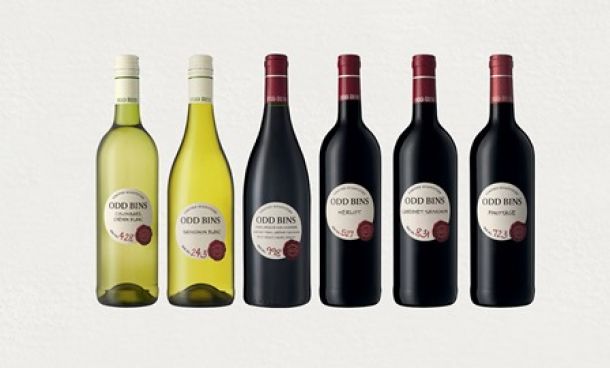Distell's investment path yields top SA results
Despite ongoing market volatility, the Distell Group remained committed to its refocused business strategy, articulated last year, to accelerate domestic sales growth and strengthen routes to markets, particularly in key African countries and in selected international markets.
According to Richard Rushton, Distell’s MD of the wine, spirits, cider and RTD (ready to drink) company, it was already seeing solid gains in the local market.
He was commenting on the results of the company for the six months to December 31, 2014, that saw year-on-year revenue rising by 10,5% to R11,0bn on the back of a weaker rand. Sales volumes increased by 3,7%.
Rushton said the company was investing heavily to support its refreshed corporate strategy, with operating expenses climbing by 11,1%. These strategic investments saw operating profit margin decline marginally from 13,8% to 13,4%. Net finance costs increased from R110,2m to R126,7m.
Normalised headline earnings and operating profit, excluding a gain of R159,0m during the comparative prior year period in the remeasurement of the contingent purchase consideration for Burn Stewart Distillers (acquired in April 2013), increased by 9,5% and 7,0% respectively. An expense of R8,9m relating to the finalisation of this transaction was also included in earnings for the current period.
Reported headline earnings dropped 7,6% to R987,4m. Headline earnings per share fell 13,4% due to the increase in the weighted number of shares in issue. Operating profit decreased 4,6% to R1,5bn. An interim cash dividend of 158 cents has been declared (2014:154 cents).
Rushton said: "We have said from the outset that our investment is for the long term. We are prioritising investments in the growth of our core brands and in new routes to markets in Africa and in selected international markets. We are also investing in initiatives aimed to up-skill our organisation and to improve operational effectiveness and efficiency. Our priority is to raise our competitive capability on a robust and sustainable basis where volatility and uncertainty are the only constants."
Even in the currently muted domestic market, Distell made significant headway as a result of investment in infrastructure and training to improve sales force performance and productivity. Domestic revenue grew by 12,9% on sales volumes that were 6,0% higher. The wine portfolio delivered outstanding results, while ciders and RTDs continued to show satisfactory growth off a very strong base. The spirits portfolio produced marginal growth. Rushton said the decline in brandy sales had slowed and was showing some signs of stabilising. There had been impressive performances from South African whiskies and some of the Scotch whisky brands, as well as Bisquit cognacs.
Although international sales volumes outside Africa reflected a 1% decline, revenue increased by 9,3%. The spirits portfolio, driven by Amarula and Scotch whiskies, grew volumes by 6,3%, with revenue rising by 12,3%. Revenue derived from wines sold rose by 6,2%, despite a 2,4% contraction in volumes due to poor market conditions throughout much of the Eurozone, which remained a significant area of exports for the group.
In sub-Saharan African markets, excluding South Africa, revenue grew by 4,1%, while total volumes declined by 2,7%, affected primarily by the timing of shipments to Angola as the prior period had seen high sales growth ahead of a customs duty increase. In-market sales in Angola remained buoyant with strong double-digit growth.
He said the Nigerian market was impacted by lower sales after a high sell-in of new brands in the prior year, but that brand momentum was now improving.
The region contributed 55,3% to foreign revenue with all of the key targeted countries in Southern and East Africa recording strong volume and revenue growth. Rushton confirmed that Distell’s expansion in Africa remained central to the group’s growth aspirations.
"We have every confidence in the growth potential of the continent. The World Bank anticipates that sub-Sahara's GDP growth outlook will remain broadly unchanged at 4,6 % in 2015, rising to 5,1% in 2017. This is in spite of the drop in oil prices, as well as China's tapering off in demand for commodities. There are many dynamic economies on the continent that are diversifying that we believe will generate opportunities for us."
Last year, Distell established a bottling facility in Ghana and in December 2014 acquired a 26% stake in KHEAL, Kenya's leading spirits manufacturer, bottler and distributor.
Distell's total assets for the six months increased by 10,6% to R17,9bn. Investment in net working capital remained at R5,5bn. Capital expenditure amounted to R305,7m, of which R165,8m was spent on the replacement of assets. A further R139,9m went to expansion of capacity, mainly for cider and whisky production.
Cash retained amounted to R1,1bn (2014: R143,7m).
Rushton maintained that Distell was in a strong financial position, given its debt to debt-plus-equity ratio of 21,1% and a debt-equity ratio of 26,8%.
He said in light of the prevailing global economic uncertainty, tough trading conditions were expected to persist for the remainder of the current financial year. The group was nevertheless positive in its outlook. "We remain confident in our ability to capitalise on market opportunities, given our diverse portfolio of strong, resilient and appealing brands. We are also strengthening our route to market network in a number of economies and regions that bodes well for our future."
News Category
- International retailers
- On the move
- Awards and achievements
- Legislation
- Wine and liquor
- Africa
- Going green
- Supplier news
- Research tools
- Retailer trading results
- Supply chain
- Innovation and technology
- Economic factors
- Crime and security
- Store Openings
- Marketing and Promotions
- Social Responsibility
- Brand Press Office
Related Articles

Makro secures exclusive rights to SA’s most sou...

Checkers adds 41 new wines to Odd Bins range

With petrol at almost R20 a litre, food prices ...

Petrol price shocker for South Africa


